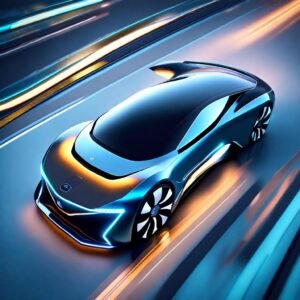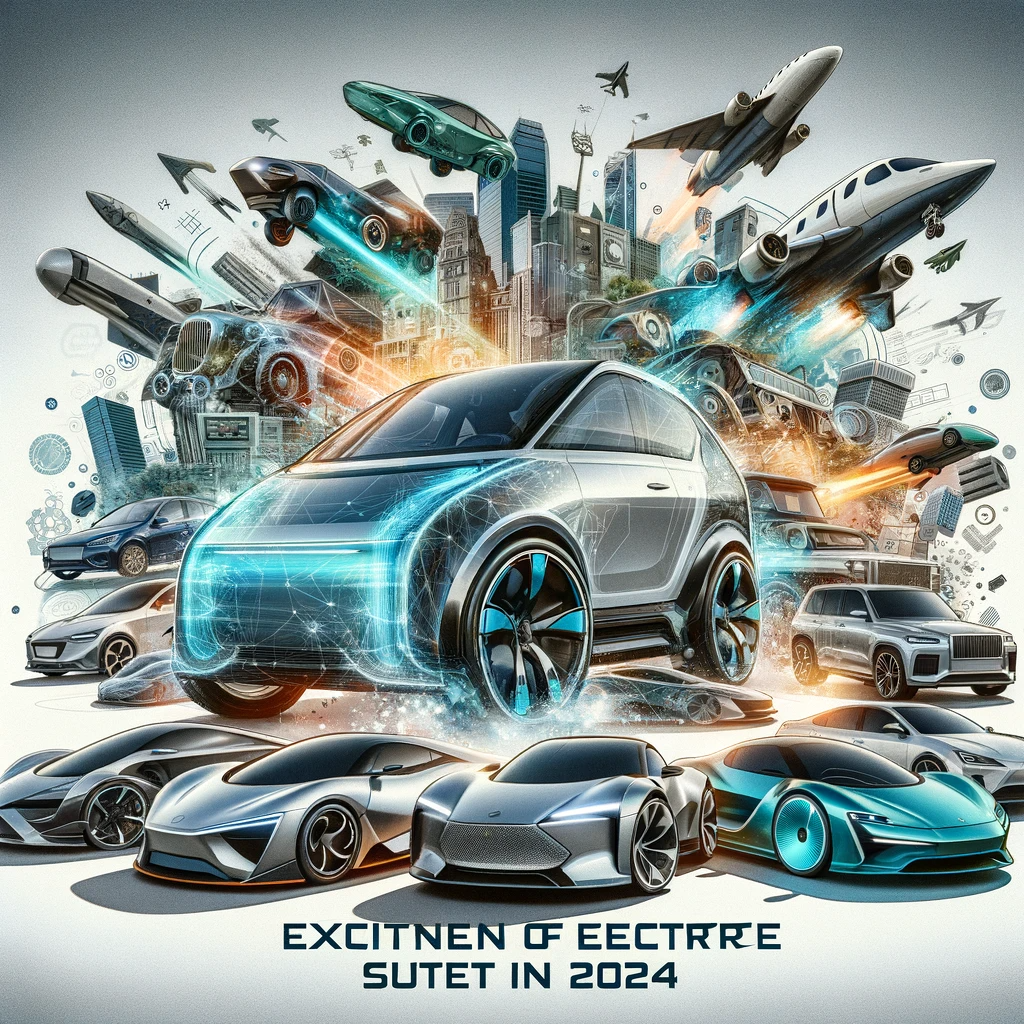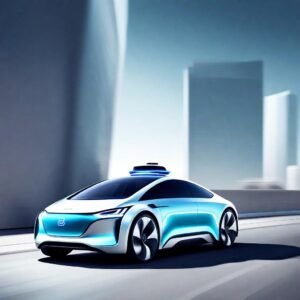As the dawn of 2024 approaches, the electric vehicle (EV) industry is not just evolving; it’s revolutionizing the way we view transportation. This in-depth blog post explores the anticipated advancements in EV technology, including future electronic cars, market trends, the environmental impact, and what consumers can expect from the burgeoning world of electric vehicles.
The Future of EV Technology:
The upcoming years are set to unveil groundbreaking developments in EV technology. Automakers are focusing on enhancing battery capacity and efficiency, reducing charging times, and increasing overall vehicle performance. The integration of advanced AI and IoT technologies is also expected to make EVs smarter, with features like predictive maintenance, enhanced navigation systems, and improved energy management.
Emerging Electronic Cars in 2024:
The year 2024 will witness the launch of several highly anticipated electronic cars. These vehicles are expected to feature cutting-edge technology such as solid-state batteries, offering longer ranges and shorter charging times. Some models to look out for include the next-generation Tesla Roadster, rumored to have a range of over 600 miles per charge, and the Volkswagen ID.4, which aims to set a new standard for family-friendly electric cars.

Market Trends and Consumer Demand:
The demand for electric vehicles is growing exponentially. In 2024, the market is expected to see a diverse range of EVs catering to various segments, from affordable compact cars to luxury SUVs and high-performance sports cars. This variety ensures that there will be an electric vehicle for every type of consumer.
Charging Infrastructure: The Backbone of EV Growth:
One of the critical components for the widespread adoption of EVs is the development of a robust charging infrastructure. By 2024, significant investments are expected in charging networks, making it easier and faster to charge vehicles. Innovations like wireless charging pads and solar-powered charging stations are also on the horizon.
Environmental Impact: A Greener Future:
The shift to electric vehicles plays a pivotal role in combating climate change. EVs have the potential to significantly reduce greenhouse gas emissions, especially as more renewable energy sources are used to generate electricity. Furthermore, advancements in battery recycling and manufacturing processes are set to minimize the environmental footprint of EVs.
Economic Implications and Opportunities:
The EV revolution is reshaping the global economy. It’s not just about the automotive industry; it impacts energy, technology, and various service sectors. As EVs become more mainstream, they are creating new economic opportunities and jobs, especially in battery manufacturing and charging infrastructure development.
Autonomous and Electric: The Future of Mobility:
By 2024, the integration of autonomous technology in EVs will further advance. This synergy promises to enhance safety, reduce traffic congestion, and revolutionize urban mobility. Autonomous electric cars could transform our entire concept of vehicle ownership and usage.
Global Leaders in the EV Space:
Countries like Norway and China are leading the way in EV adoption, thanks to supportive government policies and incentives. Automotive manufacturers worldwide are investing heavily in electric vehicles, with companies like Tesla, General Motors, and Nissan paving the way for an electrified future.
The Role of Policy and Incentives:
Government policies are crucial in accelerating the adoption of EVs. Incentives like tax rebates, grants, and subsidies, along with regulations favoring electric vehicles, are essential for boosting consumer adoption.
Challenges Ahead:
Despite the optimistic outlook, challenges remain. The EV industry needs to address issues related to battery life, raw material sourcing, and the development of a comprehensive charging infrastructure.
The year 2024 is poised to be a landmark year in the evolution of electric vehicles. With advancements in technology, supportive policies, and a growing consciousness about environmental impact, the future of transportation is electric. As consumers, businesses, and governments continue to embrace this change, the possibilities for a cleaner, more efficient, and sustainable mobility future seem limitless.


